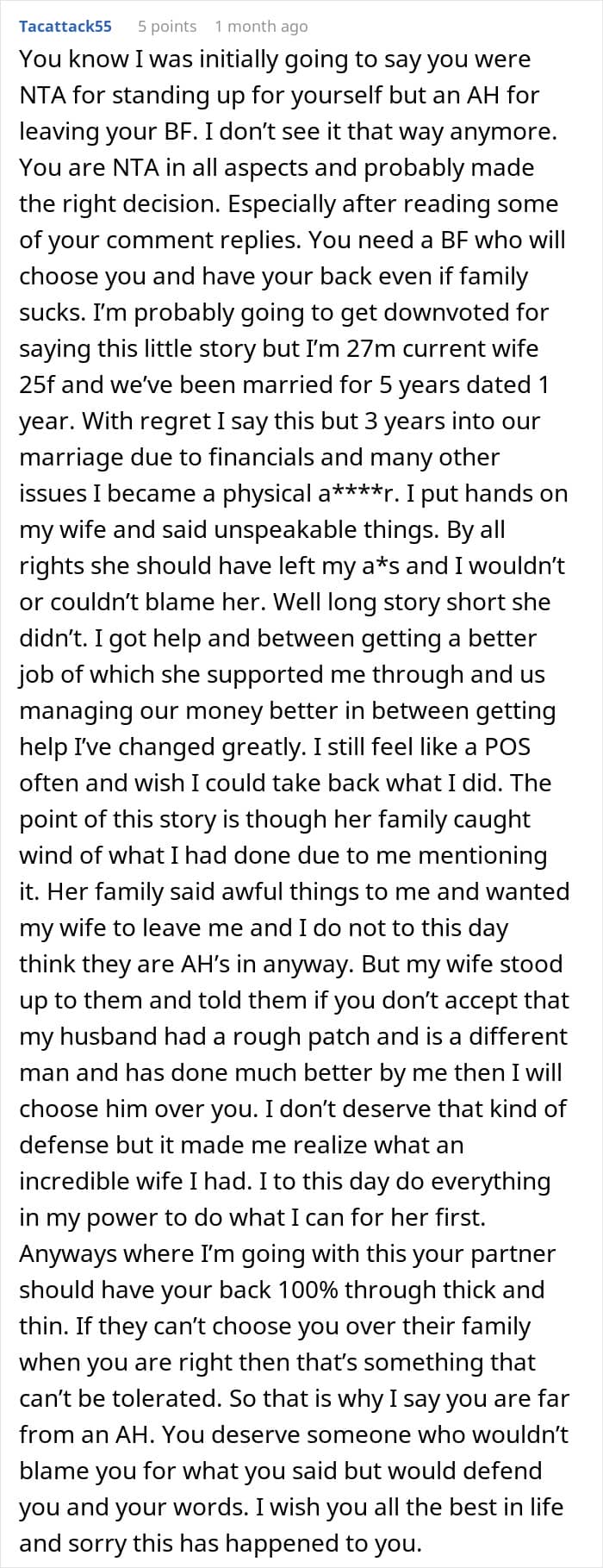Nursing is an ever-growing profession. Currently, in the U.S., there are 4.7 million registered nurses (RN), and the federal government predicts 203,000 new registered nurse positions will be created each year up until 2031. Most people respect all healthcare workers, but some look down on nurses for not being “good enough”.
This woman, for example, was mocked by her boyfriend’s family because she was “just a nurse”. Since the boyfriend was a hotshot surgeon, his family expected him to find a doctor wife. She shared her story to illustrate how family expectations and prejudices can sometimes break young couples apart.
RELATED:A nurse with a surgeon BF faced prejudice from her future in-laws

They believed she wasn’t good enough for their son because she wasn’t a doctor
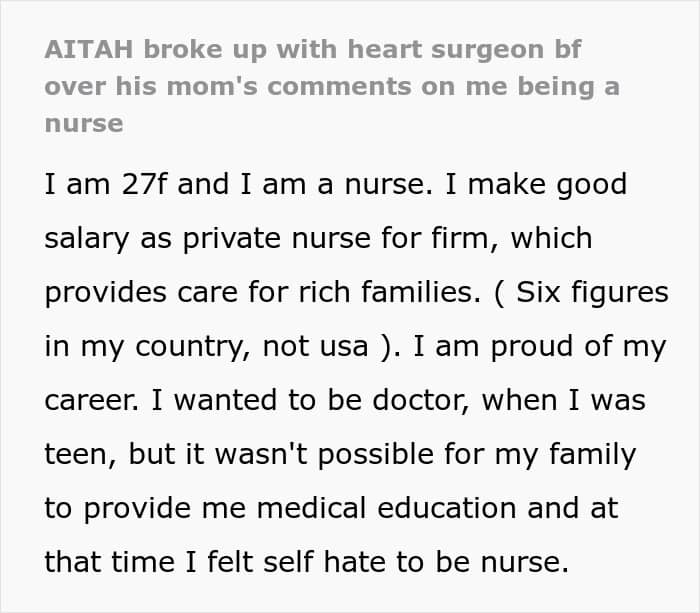
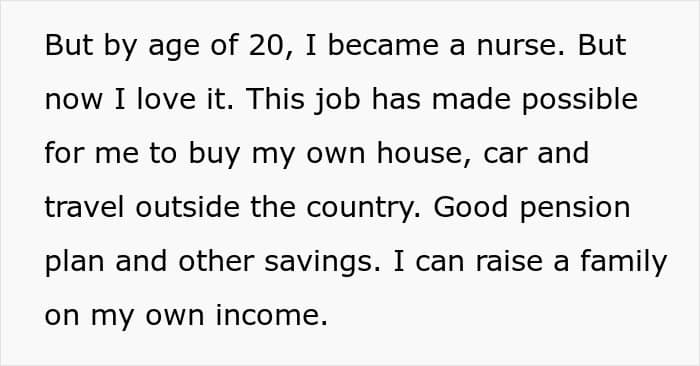
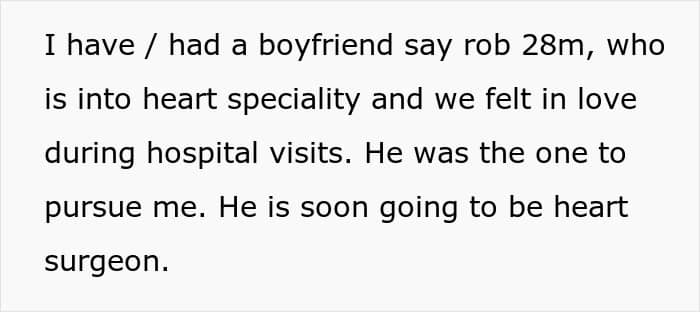
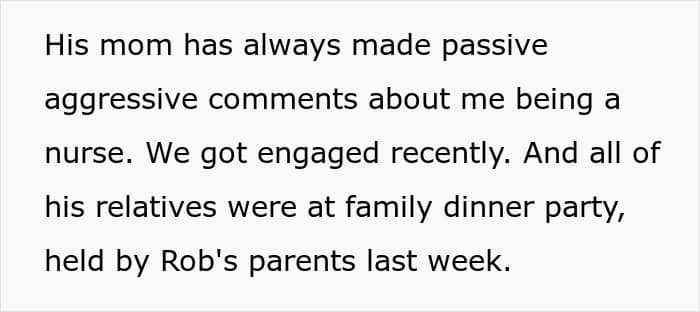
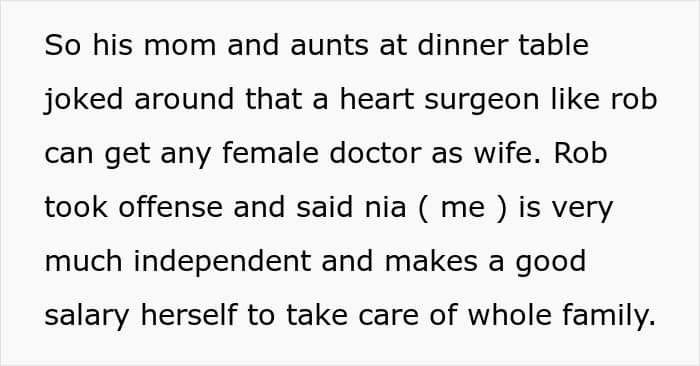

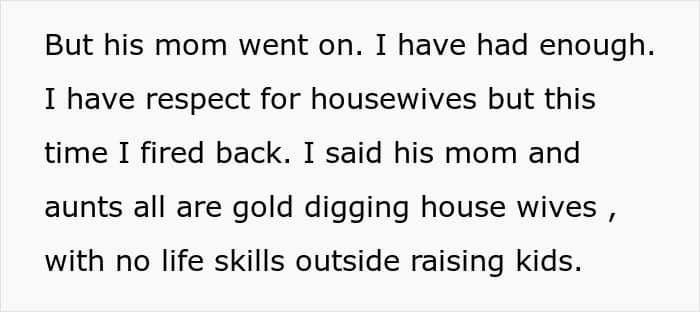
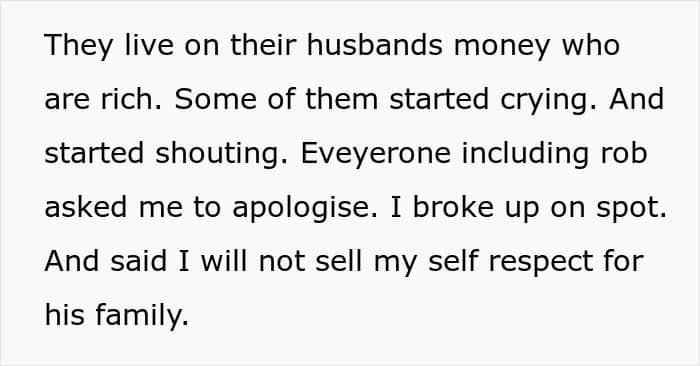
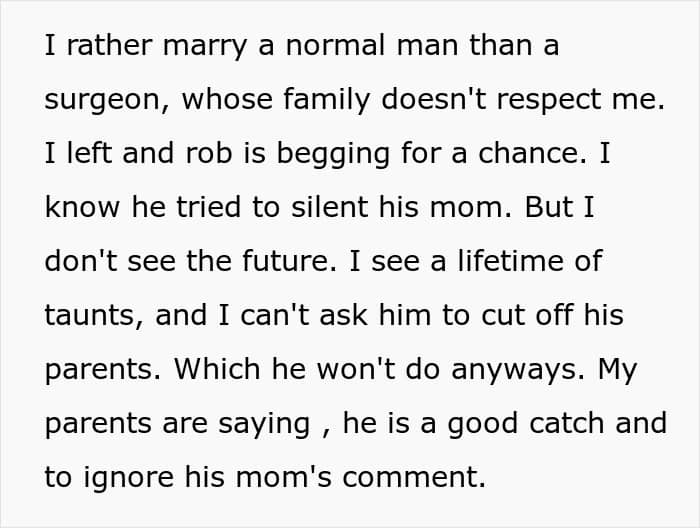
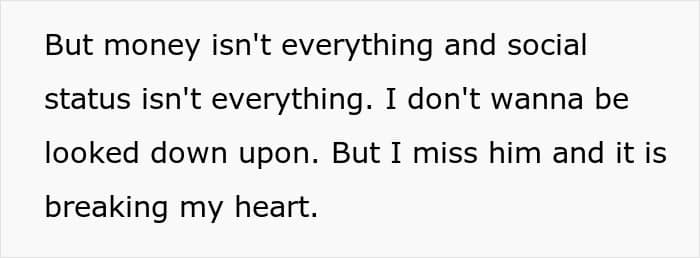
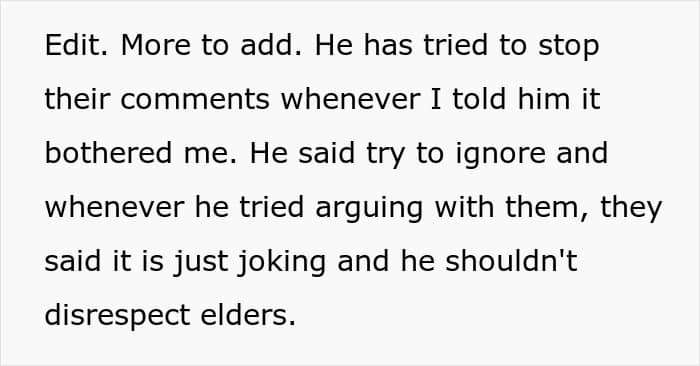
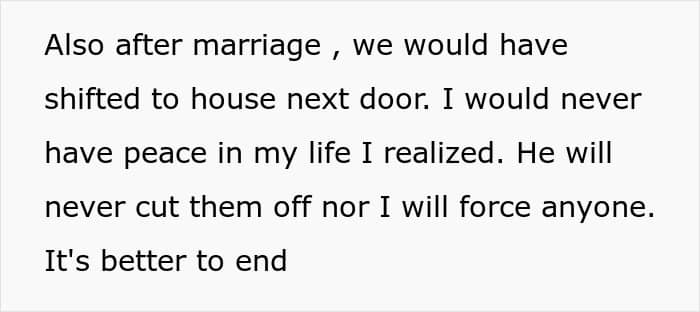
Most nurses are happy with their jobs, but they still face a lot of disrespect
This boyfriend’s parents aren’t the first ones in history to devalue the nursing profession. That’s a common stereotype that many nurses have to deal with: that they’re less valuable and don’t deserve respect just because they’re nurses and not doctors.
According to Medscape’s annual survey on nurse job satisfaction, a vast majority (92%) of nurses are happy with their chosen careers. According to the Bureau of Labor Statistics, the average salary of a registered nurse is $77,600 per year.
Although the majority of nurses report being happy with their jobs and would choose their careers again if they could go back in time, they still face a lot of disrespect. 75% and 87% of Medscape’s surveyed nurses have been attacked either verbally or physically by patients, respectively.
Unfortunately, a lot of the disrespect also comes from the people nurses work with. Almost half of the surveyed nurses claimed to have experienced emotional distress caused by a manager or an administrator, and 46% said they’ve been disrespected by their colleagues.

Image credits: Getty Images (not the actual photo)
The disrespect toward nurses often comes from doctors
Although the future heart surgeon boyfriend in this story somewhat stood up to his parents when they belittled his nurse GF, many doctors in the field don’t. In fact, many physicians and surgeons contribute to the disrespect nurses face in the workplace.
In her book The Nurses: A Year of Secrets, Drama, and Miracles with the Heroes of the Hospital, investigative reporter Alexandra Robbins claims that most nurses have been bullied or berated by a doctor.
She cites the 2013 Institute for Safe Medication Practices survey, in which a whopping 87% of nurses said that doctors had “reluctance or refusal to answer your questions or return calls,” 74% of physicians have made “condescending or demeaning comments or insults,” and 26% of nurses have even had objects thrown at them by doctors.
These types of doctors look down on nurses as assistants or “handmaidens” instead of viewing their relationship as complementary.
Robbins traces the roots of this disrespect to outdated traditional roles. In the past, most nurses were women, and until the 1960s, they were still taught to passively cater to doctors with a mindset of “He’s God almighty and your job is to wait on him.”

Image credits: Getty Images (not the actual photo)
Nursing students go through a rigorous training program
However, it’s 2025, and if HBO’s hit show The Pitttaught people anything, it is that nurses are the backbone of many hospitals. They’re often overworked, facing threats and danger of patients getting physical, yet they still manage to care for people in the best ways possible.
As people might think, it’s not that easy to become a nurse. As Alexandria Richter, MPH, RN, and PhD candidate writes, nursing students go through zoology, microbiology, biochemistry, anatomy, physiology, nutrition, and many other theory courses in their first two years of education.
Just like med students, they get to dissect a human cadaver, then go through courses of pathology and pathophysiology. Future nurses have to learn about every drug under the sun, their potential side effects, and how they interact with specific diseases.
“Nurses, skilled and educated, deserve respect, appreciation, and a voice in healthcare decisions,” Alexandra Robbins wrote for Slate. If you don’t believe it, as Alexandria Richter suggests, try pursuing a Bachelor of Science in Nursing.

Image credits:Getty Images (not the actual photo)
Commenters applauded the woman putting her self-respect first
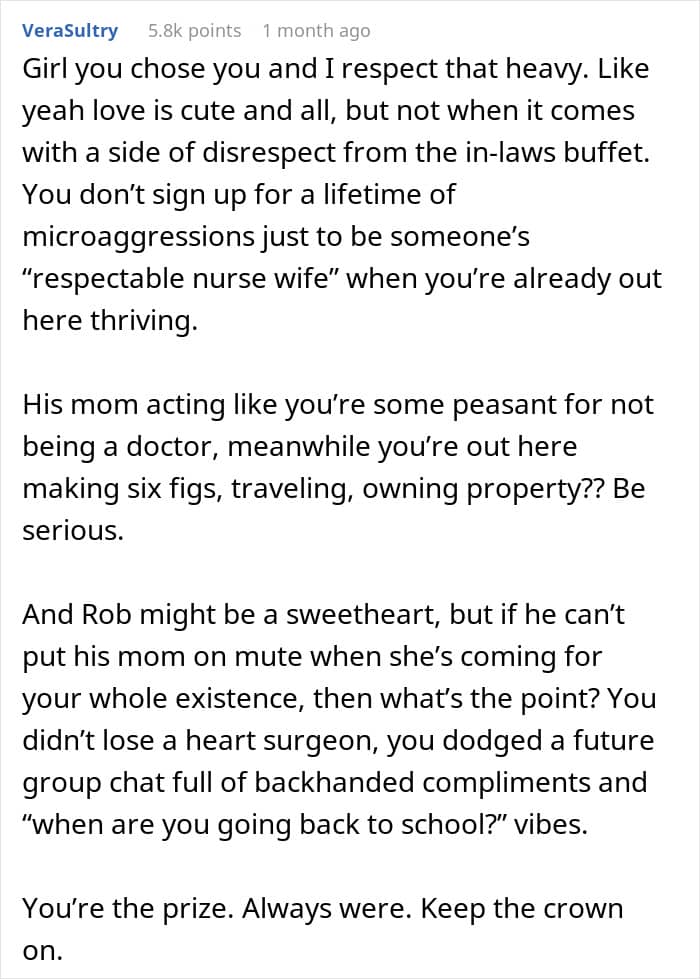

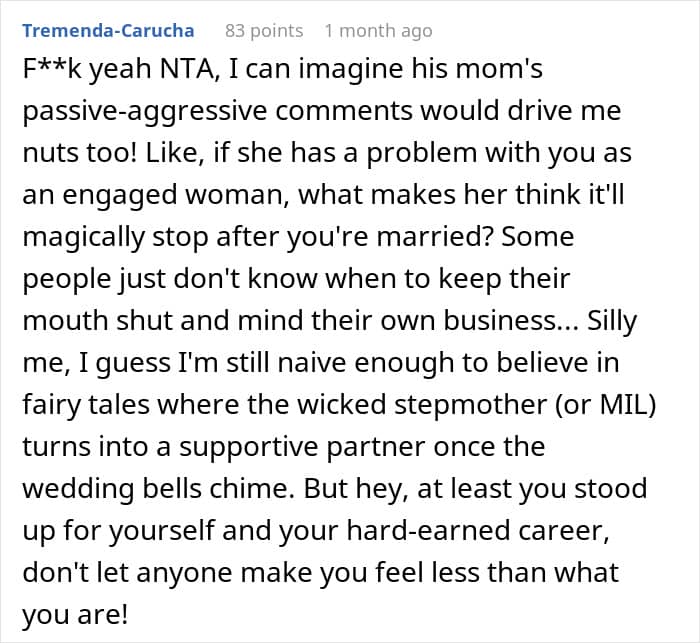
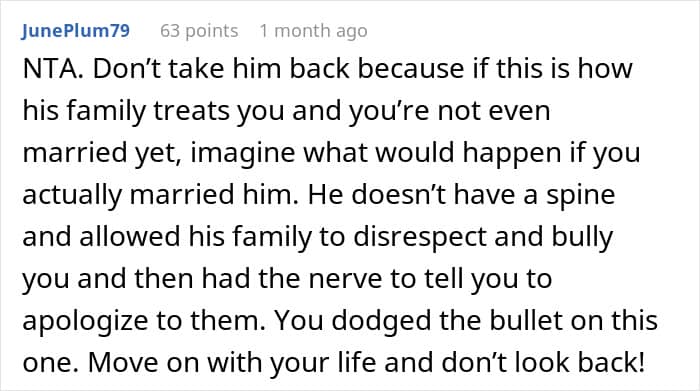

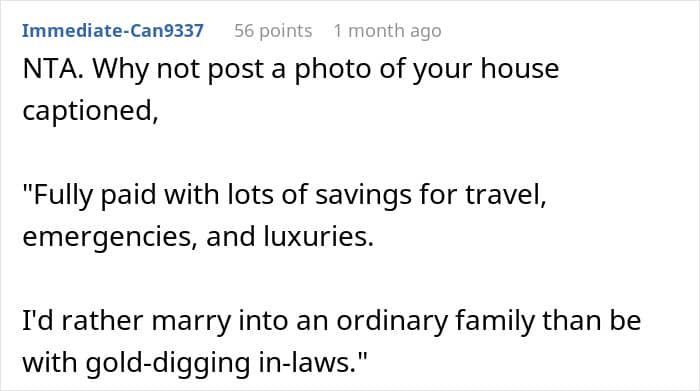

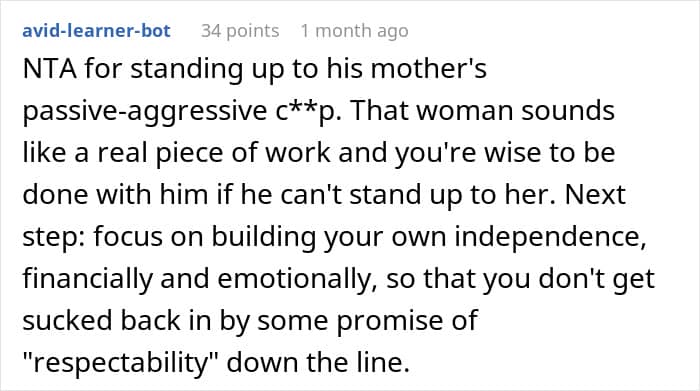

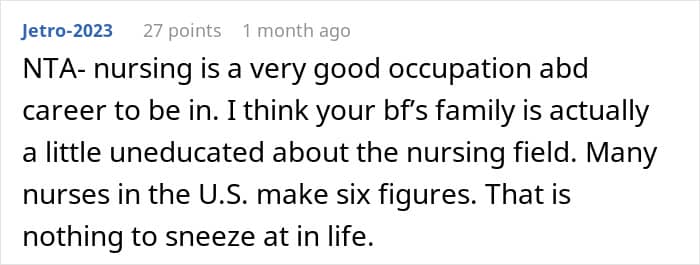
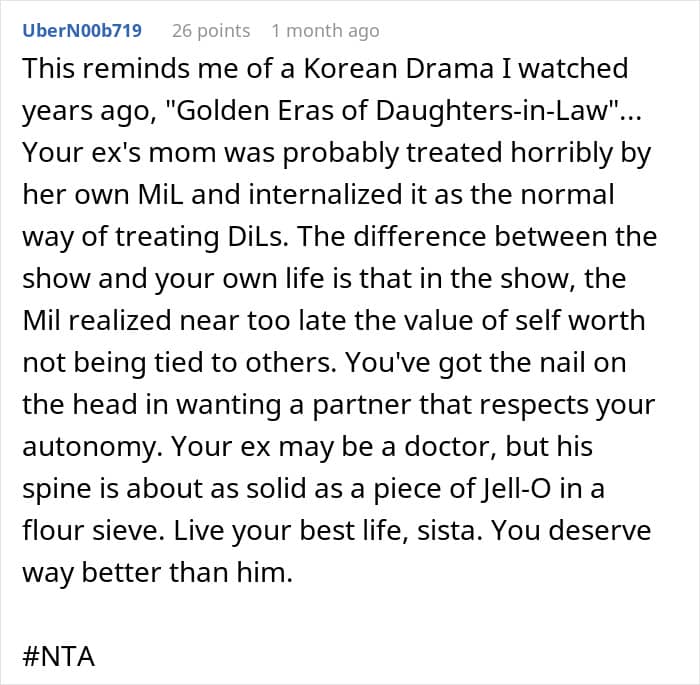



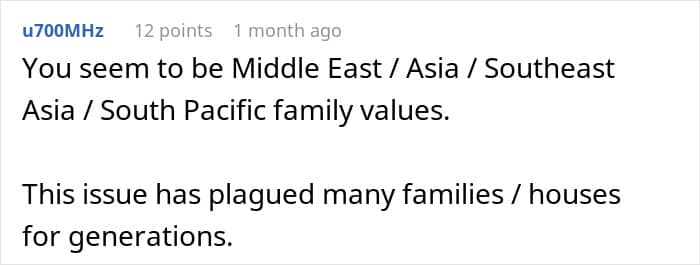


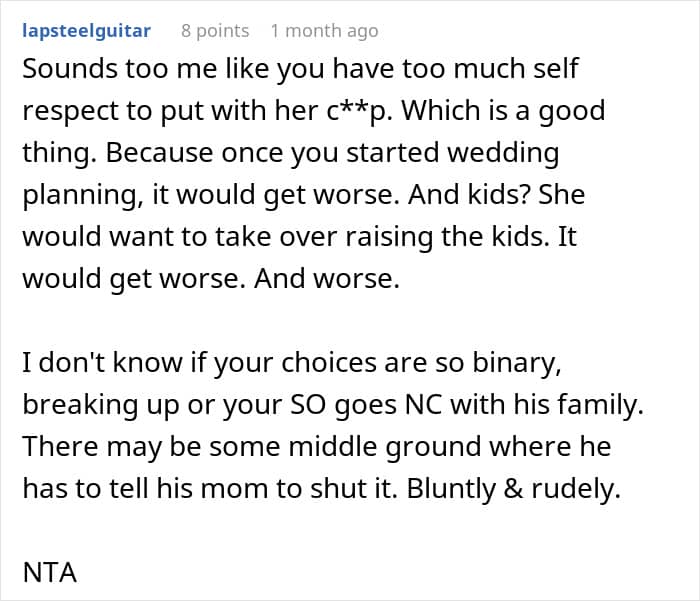
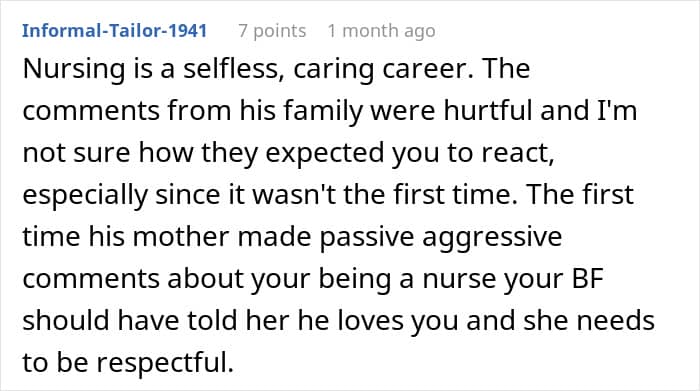

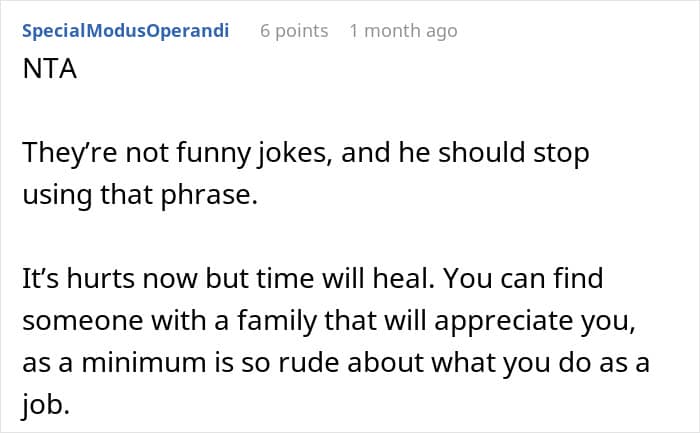
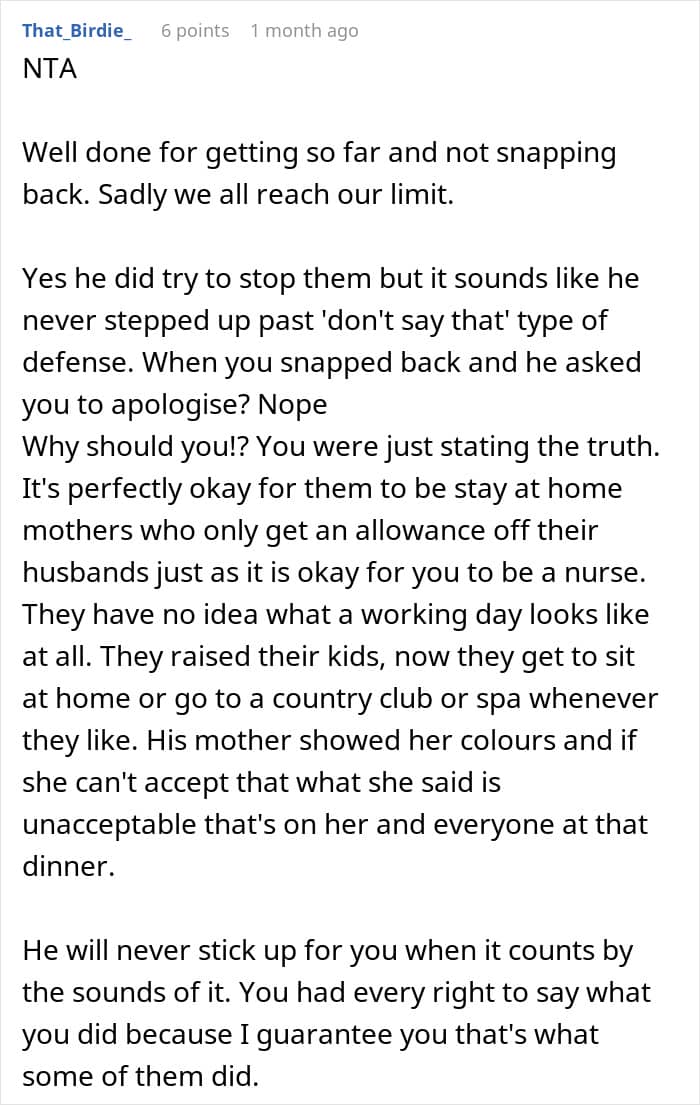

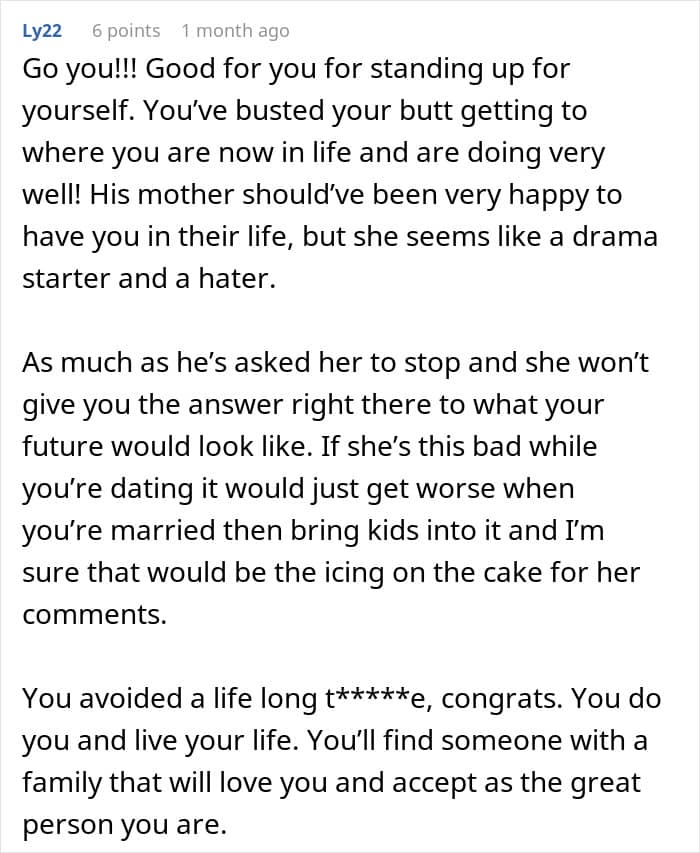
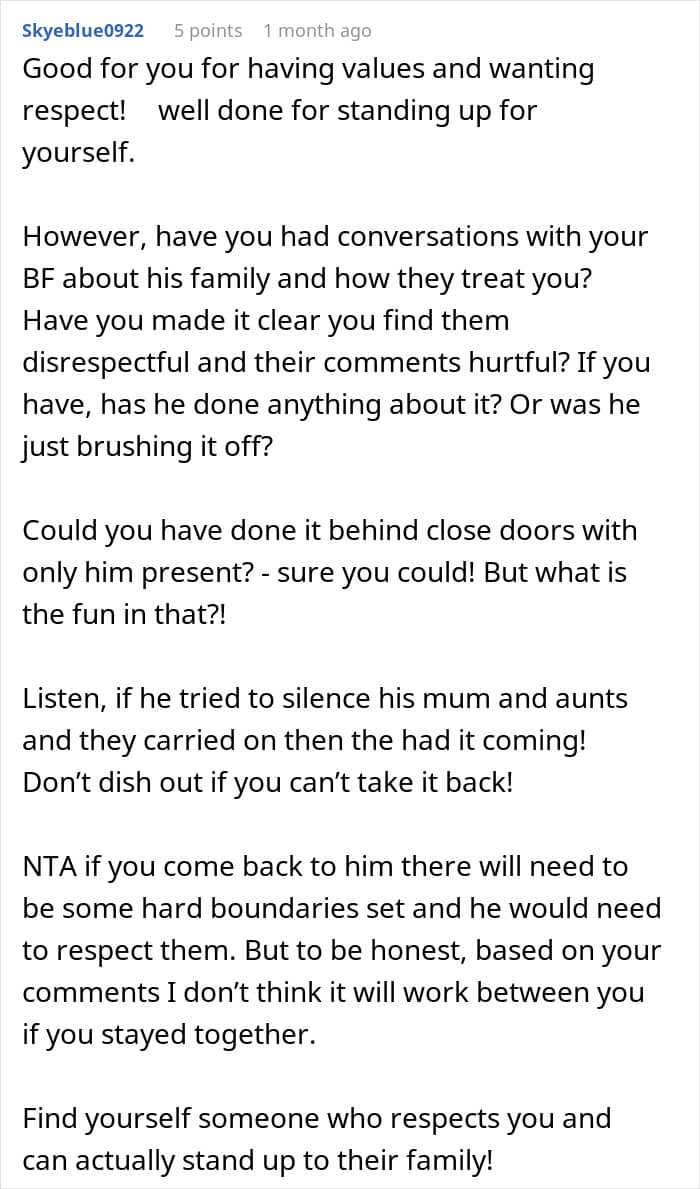

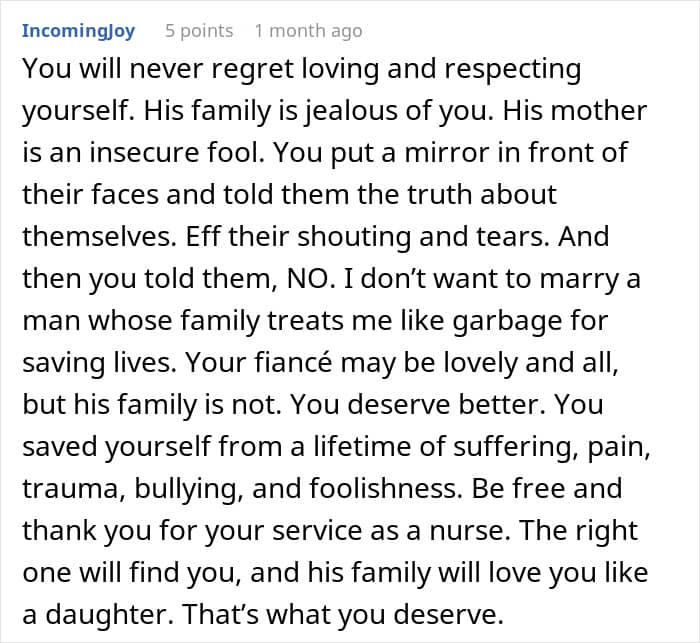
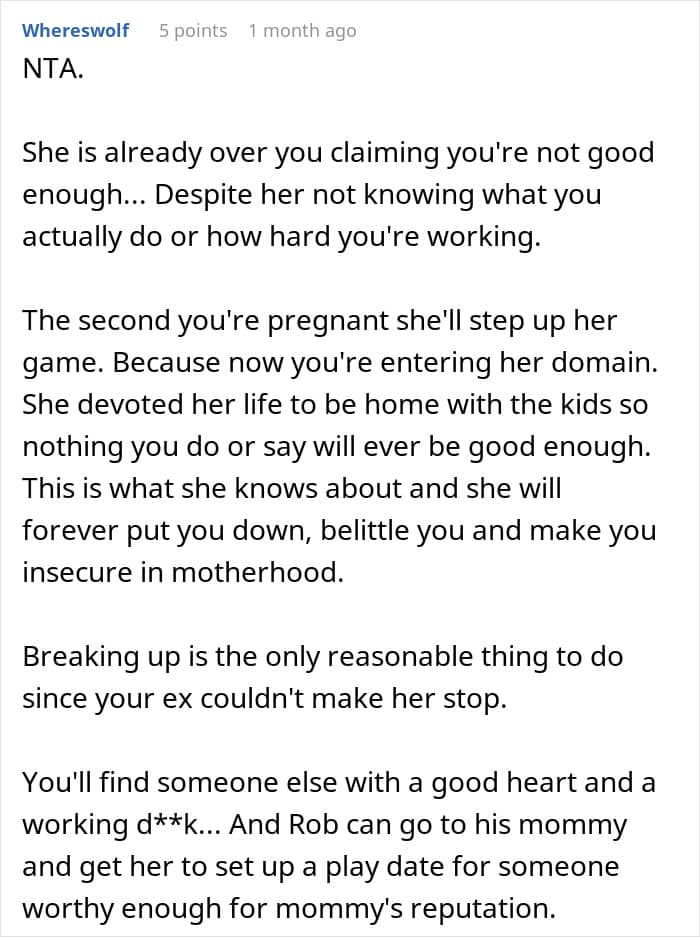

One netizen shared a personal story of how his spouse stood up for him against his family
